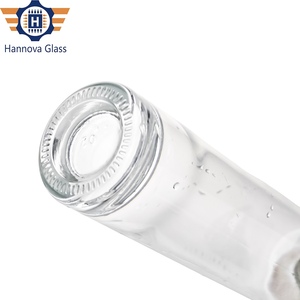
All categories
Featured selections
Trade Assurance
Buyer Central
Help Center
Get the app
Become a supplier

(1955 products available)


















































Liquor bottle pourers are spouts or stoppers placed on the top of liquor bottles to help users pour the liquid out. They serve multiple purposes, such as preventing spills, controlling the flow of alcohol and maintaining hygiene. Moreover, they are available in various forms to meet the different needs of customers. The following are some of the common types of liquor pour spouts.
Spirit bottle pourers are designed to help bartenders pour accurate and consistent shots. Here are some of the key design features:
Most bottle pourers are made of stainless steel, chrome, or food-grade plastic. These materials are durable and easy to clean, making them suitable for use in commercial bars.
The pour spouts are designed to fit into the neck of various liquor bottles. They are small and slender, allowing the bartender to pour with precision. The shape of the pourer and the number and size of the air vents can affect the flow rate and how the liquid is poured.
The key function of a liquor bottle pourer is to regulate the flow of the liquid. The spout is designed to prevent splashing and overpouring. The airflow through the pourer enables smooth, consistent pouring. The design of the pourer helps to speed up the service while maintaining accuracy.
There are many types of liquor bottle pourers. They can be used for different types of liquor, including whiskey, vodka, tequila, and rum. Some pourers have caps to keep the bottle sealed between uses. Other pourers have features like screen filters to prevent debris from entering the drink.
Liquor bottle pourers should be cleaned regularly to prevent clogging. Most pourers can be washed by hand or in a commercial dishwasher. They are designed to be easily removed and reattached to the liquor bottle.
Alcohol pourer spouts are widely used in various settings where accurate and controlled pouring of alcoholic beverages is essential. They enhance the pouring experience, minimize spillage, and improve the overall aesthetics of the bar area. In the retail and commercial sector, liquor bottle pourers are widely used in the following scenarios:
Liquor bottle pourers are used in cocktail bars, lounges, and mixology establishments to help bartenders pour spirits, liqueurs, and other ingredients smoothly and consistently. Measured pourers help in making precise and consistent cocktails, thus maintaining the quality of drinks and controlling inventory costs.
Liquor bottle pourers are used in restaurants and hotels to help serving staff pour liquor and other beverages in a controlled manner, thus reducing wastage and ensuring customer satisfaction.
Liquor bottle pourers are used in wine tasting rooms, wineries, and breweries to pour wine, spirits, and craft beer accurately and neatly. Pour spouts with dust caps are preferred to maintain hygiene and protect the contents from contaminants.
Liquor bottle pourers are used in event catering and banquets to help bartenders and serving staff pour and serve drinks efficiently and neatly.
Liquor bottle pourers are also widely used in home bars and man caves, where enthusiasts can install pour spouts to enhance the aesthetics and functionality of their personal bar areas. They allow for easy pouring of liquors for personal or social drinking. Measured pourers help keep track of the amount of liquor used and control the inventory.
Choosing the right bottle pourer mainly depends on the type of liquor being dispensed, the desired pouring rate, and the overall aesthetic and functional requirements. The purpose of the pourer, as well as the bar or restaurant's style, are also essential considerations. Here are some criteria to consider when choosing liquor bottle pourers:
For business buyers, these considerations can ensure that the bottle pourers they select are suitable for their commercial environment, provide good performance and efficiency, comply with safety and quality standards, and contribute to the overall customer experience and brand image.
Q1: Can liquor pourers be used for any type of bottle?
A1: Liquor bottle pourers are specially designed to fit most standard liquor bottles. However, they may not work well with bottles that have an unusual neck size or opening.
Q2: How can one clean a liquor bottle pourer?
A2: To clean a liquor bottle pourer, remove it from the bottle and rinse it under warm, soapy water. Use a small brush to remove any clogs. Rinse thoroughly and let it air dry before reinserting it into the bottle.
Q3: Are liquor bottle pourers reusable?
A3: Reusability depends on the type of liquor bottle pourer. Some pourers are designed for one-time use and should be replaced after use, while others, especially those made of durable materials, can be reused by cleaning them after each use.
Q4: What is the purpose of a pourer with a flap or cover?
A4: Pourers with flaps or covers are designed to provide an extra layer of protection against contaminants, insects, and dust. The flap or cover can be opened or closed to control the pouring flow and protect the bottle's contents.
Q5: Can liquor bottle pourers be used for non-alcoholic beverages?
A5: While liquor bottle pourers are designed for use with alcoholic beverages, they can also be used for non-alcoholic drinks like juices, syrups, and oils. Just be sure to clean the pourer thoroughly before switching between alcoholic and non-alcoholic beverages to prevent flavor transfer.